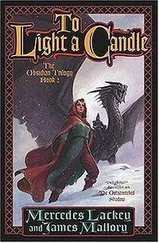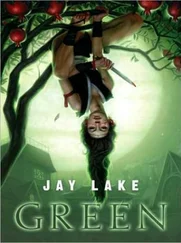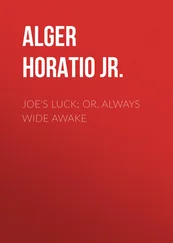Instead Laris spent her afternoon tending the temporary fane of Mother Iron, in a Temple Quarter alley behind the temple of the Frog God. They still had rights to the lot where the old temple of Marya had stood, but no money or labor to clear away the wreckage, let alone rebuild. The Frog God priests had taken pity on the women—their concerns stood outside the politics of daughter-goddesses—and allowed Mother Iron’s followers the relative shelter of their midden area.
One could make much combing the trash of wealthier people, but mostly Laris was glad for a stout wall with a small chimney that almost always blasted warm, smoky air. A light framework of scavenged timber, topped with ragged strips of sailcloth sewn together, made up the sanctuary. The altar was little more than a clump of still-joined bricks lugged from the nearby ruins, topped with an increasing pile of rusty iron nails.
No one had yet vandalized it. Women came by in the cold afternoon in ones and twos—mothers and daughters and maids and maidens and cooks and prostitutes and an actress off a foreign ship and a banker’s wife and one woman cloaked so tight Laris had no sense of her, except that she walked wrapped in that strange insulation that money creates about the very wealthy.
Each brought their mite or measure. Each prayed for guidance, or protection, or just sobbed a while. Laris listened to those who would speak, and comforted those who would take the circle of her arms around them, and shivered in the cold between times. She never counted the offerings, not until it was time for her to pack away what could be packed and seek her own living in the taverns by night.
Food in the form of withered apples, a strip of dried fish, and several stale rolls—enough for her to eat the next two days. Also three copper taels, half a dozen iron nails, and improbably, one silver obol. Laris was certain that last had not come with the wealthy woman, and probably not the banker’s wife. People with money always understood just how little was needed to get what they wanted from people without.
Laris set the coins in an inner pouch for the strongbox back at the lazaret where Mother Iron’s meager funds were kept against the future. The rest she put in a roughspun bag before heading for her usual evening haunt.
* * *
Winter crimped the flesh trade as surely as it crimped shipping or any other pursuit that required men to bestir themselves out of doors. Also, working without her sister seemed to make Laris less desirable, less interesting, except to those so drunk or bemused that any woman with a damp sweetpocket was good enough. Unless she was starving, she never went with such men. Half of them turned violent, the rest cried for their mothers and would not leave her bed when their time was up.
She sat at the shadowed end of the bar in the Poison Fish and sipped from a tumbler of watered wine. Undine behind the bar had given it to Laris on credit, but when she turned a man, Laris knew the drink and the cost of an upstairs room would leave her with little more than she had now.
The bowl of mashed chickpeas had been pure kindness.
Then Radko came stumbling from the frozen street. A voice murmured in her ear, and for a shocked moment, Laris thought Solis was still beside her. “What, sib?” she whispered in return, unsure if she was more afraid of an answer or the lack of one.
He brushed fresh snow off his tan corduroy coat, then slipped out of it, hanging it on one of the hooks alongside the door. The man didn’t even look toward her—Laris was relieved that he hadn’t pursued her into the Poison Fish with a purpose, at least—as he placed his hat, gloves, scarf, and face mask in the pockets of the shapeless jacket, leaving his upper body clad only in woolen undershirt, long-sleeved work shirt, and stained sheepskin vest.
When Radko stepped to the other end of the bar, under the hissing lantern Undine hung there to better see each new customer, Laris got a good view of his profile. Slightly hunched at the shoulder, as if he were half a lifetime older. Long, narrow nose out of alignment thanks to some argument with a teamster years past, if she recalled the story correctly. Curly hair greasy-dark with the sweat of labor, that he washed in the spring and again in the fall each year. Thick eyebrows under a deep forehead that hid eyes she knew would glimmer a dull brown.
Dull brown, that was the man. She’d never known what Solis had seen in him.
Still, her late sister’s hand on her elbow propelled Laris into the light, struggling against the few steps toward that end of the bar.
“Oh, hullo,” Radko said, looking up at her.
Exasperation outpaced caution to Laris’s lips. “Hullo? That’s all you have for me now, two months after she died?”
He shrugged, accepted a pewter tankard of ale from Undine. Laris smelled the yeasty, liquid-bread stink of it. Radko traced a finger through the foam. “You don’t never talk to me, ma’am.” A shrug. “She died, you didn’t want me around. Didn’t matter what I had for you.”
Laris felt a pang of guilt, followed by another burst of anger. Her heart was too troubled for this conversation. But Neela had held the right of it on her sharp tongue as well. “I was wrong,” she said slowly. The words were ashen in her mouth. “You grieved her, too, and I was wrong to turn you away.”
Another shrug. “Ever’body turns me away. ’M used to it.” A long pull on the tankard. Radko seemed to find something fascinating floating in his ale.
“Sh-she needs to say farewell,” Laris blurted.
That drew a long look from Radko, with an expression that implied there might yet be a measure of shrewdness behind those dull eyes. Finally: “Solis needs that, or you?”
You cut me, and I bleed. Laris tried to think like a priestess, though she was tired and cold and broke. “All of us need that, perhaps.”
Radko returned to studying his ale. His right index finger made nonsense patterns in the spill glistening on the worn oak bartop. “I’ll go with you,” he muttered.
“I… I haven’t worked yet tonight.” Somehow, her lack of clients suddenly seemed a deeply personal failing. Laris knew her beauty was fading with age and hard use, but there was always more to it than that. “I c-cannot leave.”
The man reached into the inner pocket of his sheepskin vest. “You’re four coppers, same as Solis, right?”
Laris just stared.
“For a flatback and half a candle’s worth of time,” Radko added, in case she had somehow not understood.
“Yes, but I—”
“I ain’t going with you,” he snarled. Now they were both embarrassed. “Just buying your time. So’s we can say farewell to Solis together.” Five coppers clinked onto the bar.
Well, thought Laris, at the least I won’t have to pay Undine for the room. Against her better judgment, she reached shivering for the coins. She left one behind for the barback to take in payment for her abandoned wine, thin as winter blood and almost as cold.
* * *
They pushed through the night, walking into the chill, whistling wind. The snow had left off again, but the sky bellied low and full, where it could be seen at all in the darkness. Only the greater streets of Copper Downs were lit by the new gas lamps. On a winter’s evening like this one, even the third watch was late enough for most houses to be shuttered. The light posts on the city’s lesser streets were glowing cinders, or empty, their pitch-soaked torches stolen for someone’s night fire.
From the Poison Fish to Laris’s apartment was only a matter of fifteen minutes or so in good weather. Tonight, head down, her thin cotton cloak drawn close, she figured on twenty. In this weather the idea of taking Radko into her bed, just for the warmth of it, had a certain appeal. But this was Radko . Her sister’s pet simpleton. She didn’t even want to touch his arm as they walked.
Читать дальше











